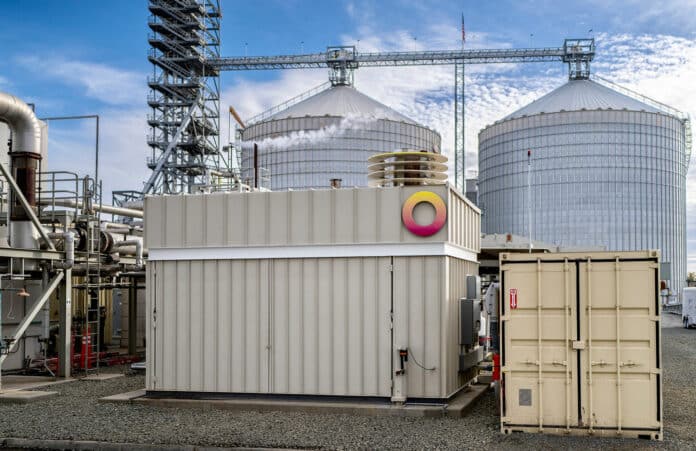As part of its Industrial Demonstrations Program (IDP), the U.S. Department of Energy has selected Diageo North America for award negotiations of up to $75 million to support the electrification of its production sites in Kentucky and Illinois. The company aims to make both facilities carbon-neutral by 2026 and 2028, respectively.
Diageo plans to partner with Rondo Energy to install Rondo Heat Batteries, which will provide low-cost, zero-carbon heat and power to the production sites. This will eliminate the need for natural gas boilers used in heating processes. The heat battery technology captures and stores renewable energy, delivering continuous industrial heat and power that address intermittency concerns.
The Rondo Heat Battery technology works by utilizing renewable energy sources such as solar and wind power to store energy. It heats bricks up to an astounding 1500 degrees Celsius, acting as a long-lasting hot water bottle for an entire factory. The most impressive aspect of it is that it can run non-stop even when the renewable energy source is only charging it for a few hours a day.
The electric thermal energy storage (ETES) that will be deployed for this project is a promising innovation for industrial decarbonization. It offers a cost-effective and reliable way to produce clean energy for decades to come. This project’s heat and power model system is a great example of how this technology can be used in various sectors, including food and beverage. It has the potential to be replicated in many other industries as well.
“Spurring on the next generation of decarbonization technologies in key industries like steel, paper, concrete, and glass will keep America the most competitive nation on Earth,” said U.S. Secretary of Energy Jennifer M. Granholm. “Thanks to President Biden’s industrial strategy, DOE is making the largest investment in industrial decarbonization in the history of the United States. These investments will slash emissions from these difficult-to-decarbonize sectors and ensure American businesses and American workers remain at the forefront of the global economy.”
Traditional production processes in the beverage industry often rely on natural gas to generate the large thermal loads required for operations such as distilling, bottling, cleaning, pasteurization, and HVAC systems. However, this can lead to significant greenhouse gas emissions.
As a solution, a new project aims to replace natural gas with a more sustainable alternative. This will help eliminate nearly 17,000 metric tons of direct greenhouse gas emissions annually across two facilities, equivalent to taking more than 4,046 gasoline-powered cars off the road for a year.
“Rondo is excited to be working with Diageo to power their production operations and cut their costs,” said Rondo CEO John O’Donnell. “Diageo has been a pioneer in deploying technologies for efficiency, cost reduction, and decarbonization. The Rondo Heat Battery opens new opportunities for simpler cost reductions and deeper integration with renewable energy sources, and we’re honored Diageo has chosen us to help them achieve their 100% renewable energy goal.”
Diageo has partnered with the National Renewable Energy Laboratory (NREL) to support its techno-economic and life-cycle analyses. NREL will help validate carbon reductions in both projects.
Diageo’s operations have contributed to the economic development of Illinois and Kentucky, supporting over 9,200 jobs across the distribution, retail, and hospitality sectors in both states. Diageo has a strong supply presence and a longstanding partnership with the communities in these states.
The funding for decarbonization projects will support community benefits programs and contribute to Diageo’s sustainability approach as outlined in the ten-year action plan ‘Society 2030: Spirit of Progress’. This plan focuses on important priorities such as water stewardship, sustainability by design, achieving carbon neutrality, and switching to renewable energy by 2030.
